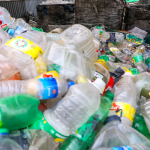
Waste management is a critical challenge for many countries, especially in rapidly urbanizing and developing nations like Nigeria. The country’s burgeoning population and economic activities have resulted in increased waste generation, overwhelming existing waste management infrastructure. Traditional approaches to waste management have often focused on technological and regulatory solutions. However, these strategies alone have proven insufficient. Behavioral science offers a complementary approach, emphasizing the modification of individual and collective behaviors to achieve more sustainable waste management practices.
The Waste Management Landscape in Nigeria
Nigeria generates approximately 32 million tons of waste annually, with Lagos, the largest city, contributing a significant portion. The waste composition includes organic materials, plastics, metals, and hazardous waste. The informal sector plays a substantial role in waste collection and recycling, but overall, the country faces numerous challenges:
Inadequate Infrastructure: Insufficient waste collection services and poorly maintained disposal sites.
Lack of Public Awareness: Limited understanding of proper waste disposal and recycling practices.
Policy and Regulatory Gaps: Inconsistent enforcement of waste management regulations.
Applying Behavioral Science to Waste Management
Behavioral science examines the psychological, social, and cultural factors influencing people’s actions. By understanding these factors, policymakers can design interventions that encourage sustainable waste management behaviors. Key concepts from behavioral science relevant to waste management include:
Nudging: Subtle changes in the environment can influence behavior without restricting choices. For example, placing recycling bins in prominent, convenient locations can encourage their use.
Social Norms: People are influenced by the behaviors of others. Public campaigns showcasing community leaders and influencers practicing proper waste disposal can set positive examples.
Incentives and Penalties: Financial incentives for recycling and penalties for improper waste disposal can motivate behavior change.
Education and Awareness: Providing information about the environmental and health impacts of waste can drive more responsible behavior.
Case Studies and Examples from Nigeria
The Waste-to-Wealth Initiative in Lagos: This program encourages recycling by offering financial rewards for waste collection. By collaborating with the informal sector, the initiative has increased recycling rates and provided income for many residents. Behavioral incentives have proven effective in mobilizing community participation.
Public Awareness Campaigns: The Lagos State Waste Management Authority (LAWMA) has implemented campaigns to educate citizens about waste segregation and recycling. These campaigns leverage local media and community events to disseminate information and change social norms.
School Programs: Integrating waste management education into school curriculums fosters early adoption of sustainable practices. Programs like the “Clean and Green Club” in Nigerian schools engage students in waste collection and recycling activities, instilling long-term environmental stewardship.
CHALLENGES
Cultural Barriers: Deep-rooted habits and attitudes towards waste can be resistant to change.
Economic Constraints: Financial limitations may hinder the implementation of large-scale behavioral interventions.
Coordination and Enforcement: Effective waste management requires coordination among various stakeholders and consistent enforcement of policies.
SOLUTION
Community Involvement: Engaging local communities in designing and implementing waste management strategies ensures that interventions are culturally appropriate and widely accepted.
Partnerships: Collaborations between government, private sector, and NGOs can pool resources and expertise.
Continuous Monitoring and Evaluation: Assessing the impact of behavioral interventions allows for adjustments and improvements over time.
In summary, sustainable waste management in Nigeria can be significantly enhanced through the application of behavioral science. By understanding and influencing the behaviors of individuals and communities, Nigeria can improve its waste management practices, reduce environmental impact, and promote public health. Successful initiatives such as the Waste-to-Wealth program and public awareness campaigns highlight the potential of this approach. Moving forward, a concerted effort involving policymakers, communities, and stakeholders is essential to create a sustainable waste management system in Nigeria.
Behavioral science provides valuable tools for addressing the waste management crisis in Nigeria. By focusing on human behavior, we can develop more effective, culturally sensitive, and sustainable waste management solutions.












